Mareia Teh’s agonising final hours of life haunted her daughter Belinda, so she started walking
Mareia Teh’s daughter watched her die in utter agony, helpless and without options. Haunted by the tragedy, she started walking and kept going.

Mareia Teh’s eyes were fixed open but pointing in different directions, almost like they were fixated on opposite sides of the darkened room.
She was non-responsive — the 63-year-old’s vibrant spirit, so present just months earlier, extinguished so suddenly and cruelly.
“She was twitching and gasping for air, like someone was choking her,” her daughter Belinda recalled to news.com.au, her voice breaking with raw emotion.
“My mother was totally unrecognisable. She stank. She looked awful and her skin was all these different colours — grey, purple, yellow and blue.”
Mareia was extremely agitated as the end of her life approach, despite having been sedated repeatedly.
Nurses at the hospice in Perth explained that when she twitched too much, Belinda should press a bell. They would come to review her mum’s condition and give more morphine to try to settle her for a while.
“And so, she would twitch, we’d press the bell, we’d wait for the nurse, the nurse would give more morphine, it would take 20 minutes to kick in and she’d slowly settle down,” Belinda said.
“Maybe 20 minutes after that it would start all over again. It was this horrendous cycle. It went on for four hours. It was excruciating.”
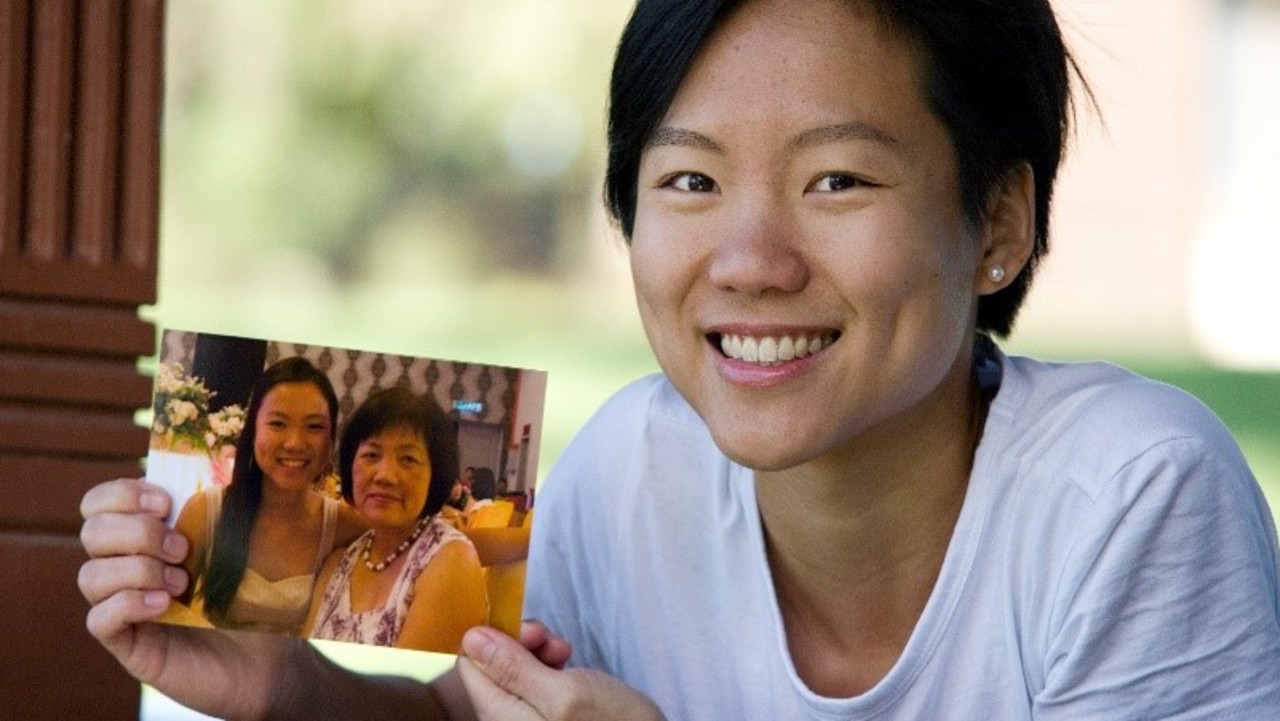
Finally, at 8.20am on April 10 in 2016, Mareia was declared dead.
It was Easter Sunday — something of a poignant day for the devout Catholic and veteran nurse who a few months earlier had begged doctors to let her die.
A little more than three years on, Belinda, now 27, still haunted by the horror and agony her mother had to endure in those final hours, started walking.
She set off from the steps of Victoria’s Parliament House in Melbourne on May 28 and carried on west, slowly but surely making her way home.
Today, just after lunch, Belinda took her final step out the front of WA’s parliament in Perth, met by Premier Mark McGowan, to signify the end of her epic effort to cross Australia to raise awareness of the need for laws allowing voluntary assisted dying.
“This whole thing kind of began in November 2017 when I was sitting in my bedroom folding my laundry and I heard on the radio that Victoria had just passed a voluntary assisted dying law that would be implemented in June this year,” Belinda explained.
“I thought to myself, why there and not here? Why now and not back then? I calculated that my mum missed out on a peaceful and dignified death by three years and 3500 kilometres. The sheer unfairness of that drove me nuts.
“By walking from Melbourne to Perth, it’s almost like I’m trying to bring this choice back home with me.”
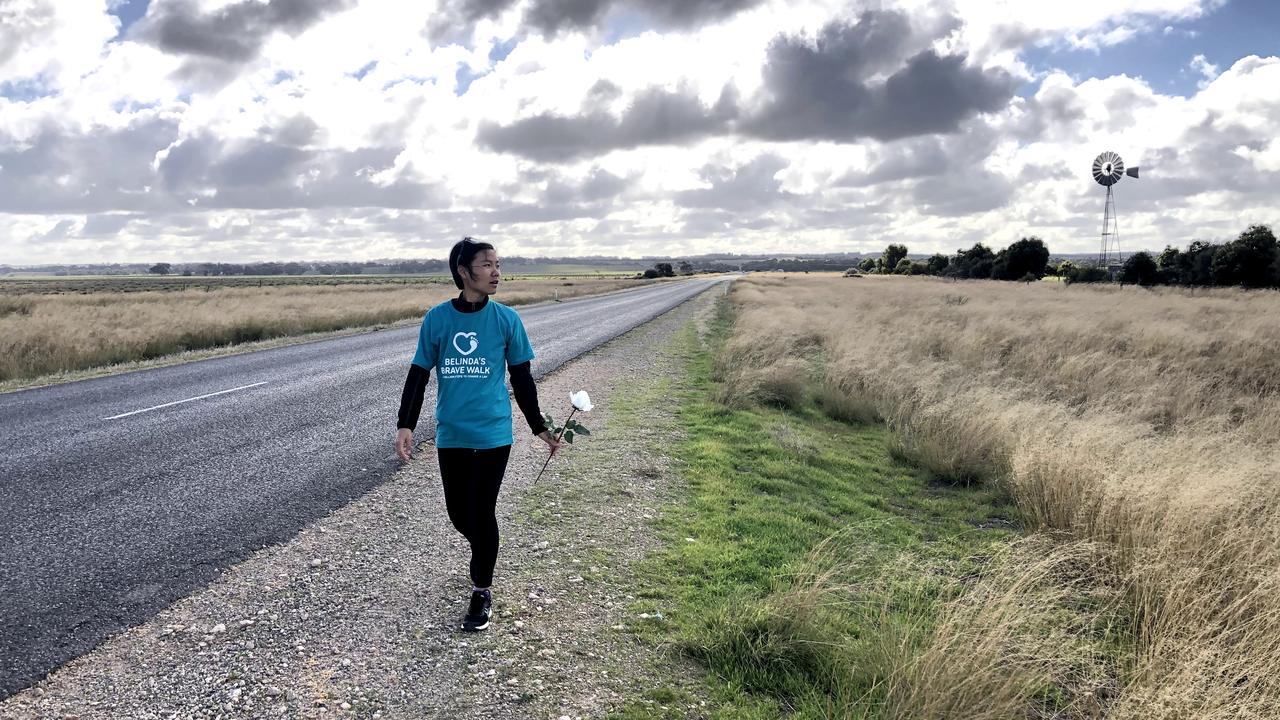
Despite Mareia’s faith and her 39-year career as a caregiver, she had asked doctors repeatedly in her final months to let her go peacefully.
Perhaps due to her work as a nurse, she knew what was coming.
“Mum was diagnosed with advanced, aggressive, triple-negative, terminal breast cancer at the start of 2016,” Belinda said. “All of the worst words in one diagnosis. It was totally out of the blue. We couldn’t have known she had cancer.
“She’d had increasing back pain for a while, but she was a nurse for 39 years, so she thought it was from being on her feet her whole life. She didn’t think much of it.”
That primary cancer in her breast spread to her bone marrow and a tumour developed in her spine, which grew so large that it shattered a vertebra on both sides.
By the time doctors caught it, it was too late. There was nothing they could do.
“From day one, the oncologist said there was no getting out of this alive. The prognosis was that if she responded well to chemo, she would live less than three years, but if not, she’d be dead in a year,” she said.
“And so, she was in hospital dealing with not just the pain but invasive medical procedures designed to treat the cancer. Biopsies, cutting out part of the bone marrow while she was still conscious with a metal instrument, constantly being poked and prodded, then the chemo with all the vomiting and her hair falling out.”
RELATED: Victorian mum is the first to use euthanasia laws
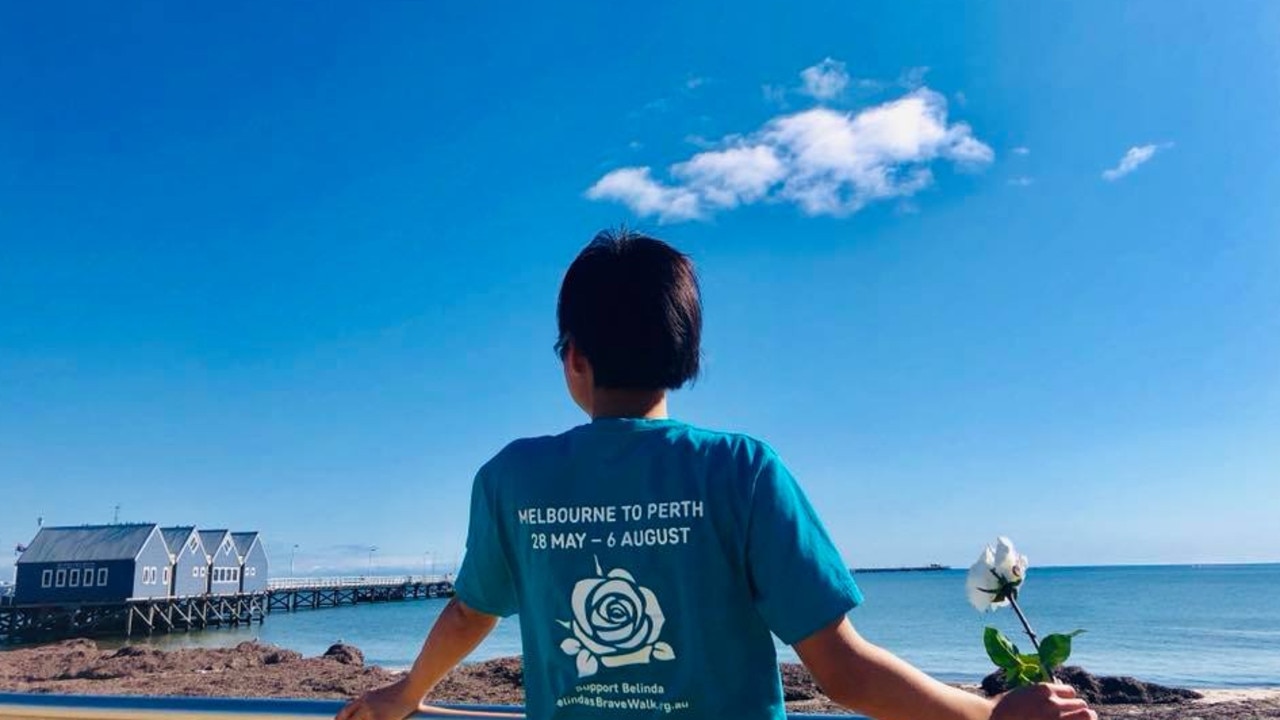
After several weeks, the oncologist delivered the news that the treatment not only hadn’t worked, but Mareia was so ill the intensive chemotherapy was killing her faster.
Belinda was crushed. She half expected her mum to scream or cry, or lash out at the shocking suddenness of it all.
Instead, she turned calmly to her doctor and said: “Please help me to go now.”
As it remains now, assisted dying was not a legal option for West Australians battling terminal conditions. Instead, Mareia was sent to a hospice to die.
“Three days in that place and she asked her palliative care doctor the same thing, to please let her go,” Belinda said.
“As a result of the law, I watched my mum spent the last hours of her life in complete agony. The final four hours haunt me.”
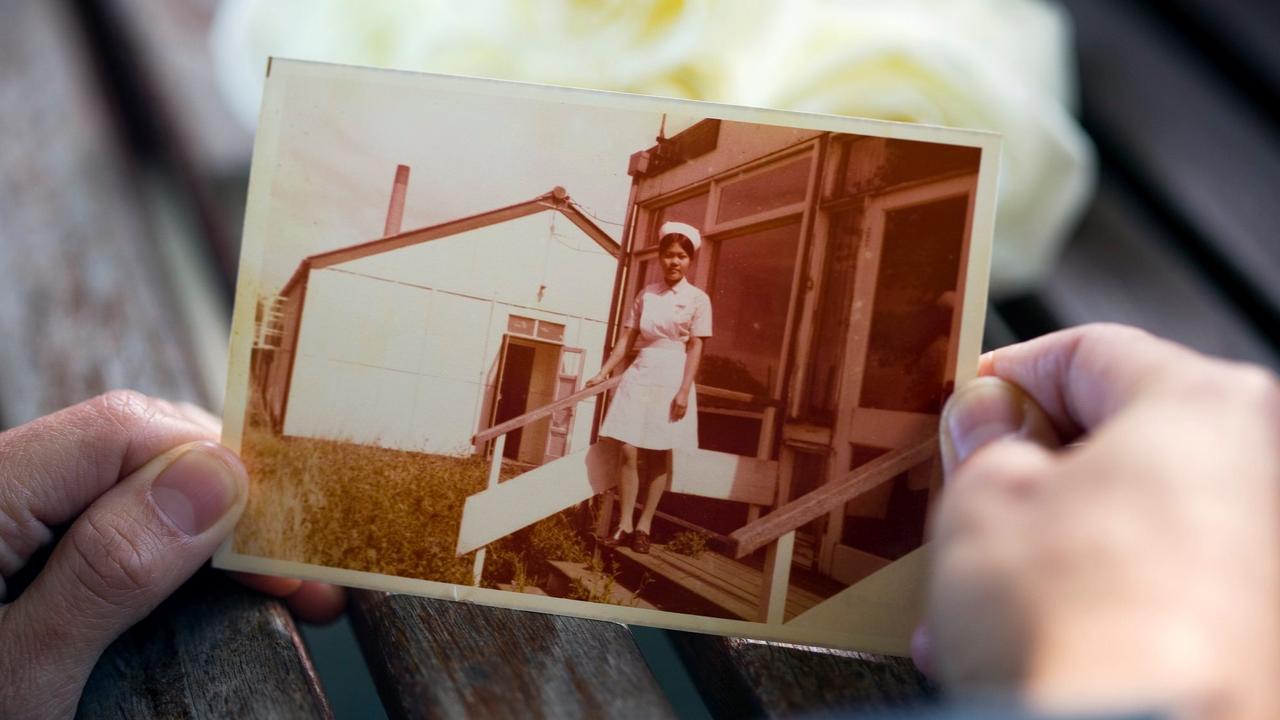
Voluntary assisted dying legislation is now on the books in WA, due to be debated by the end of the year, and while recent successive polling shows strong community support, Belinda didn’t want to leave anything to chance.
“Every day that goes by with people not having access to a compassionate voluntary assisted dying law, people are suffering,” she said.
“Towards the end of her life, Mum couldn’t walk and watching her lose that ability was just heartbreaking. And so, that’s why I’m walking. I’m trying to make it right.”
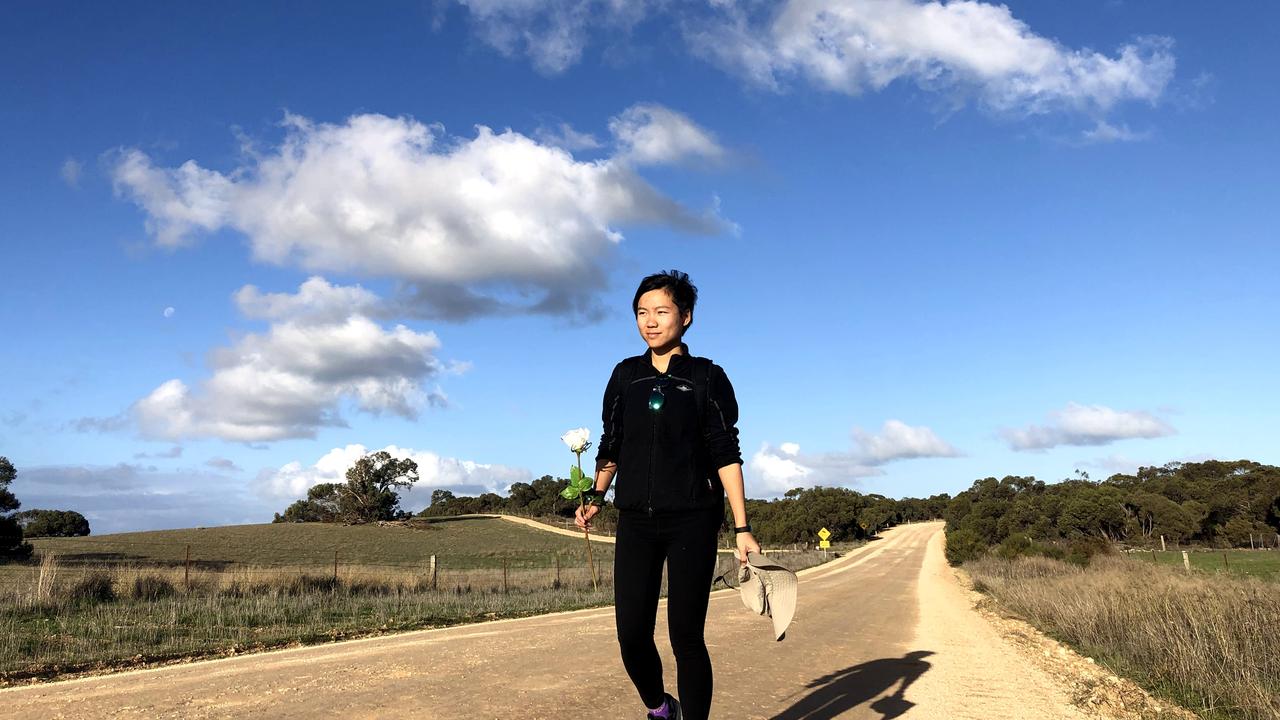
The challenge of walking 4500 kilometres across Australia — roughly three million steps taken over 70 days — was not insignificant.
Belinda described it as “gruelling, exhausting, emotional and cathartic” all at the same time.
“The road between Esperance and Albany was unbearable,” she admitted.
“It’s low season, it’s winter, so there aren’t many people around down there. I saw more dead kangaroos along that street that week than people. That was really tough and very lonely.”
For three or so months after her mum’s death, Belinda had vivid and horrific nightmares almost every night about Mareia’s final hours.
“I think it’s normal when you’ve experienced trauma and they went away eventually. I haven’t had them since — until that stretch of the walk between Esperance and Albany.”
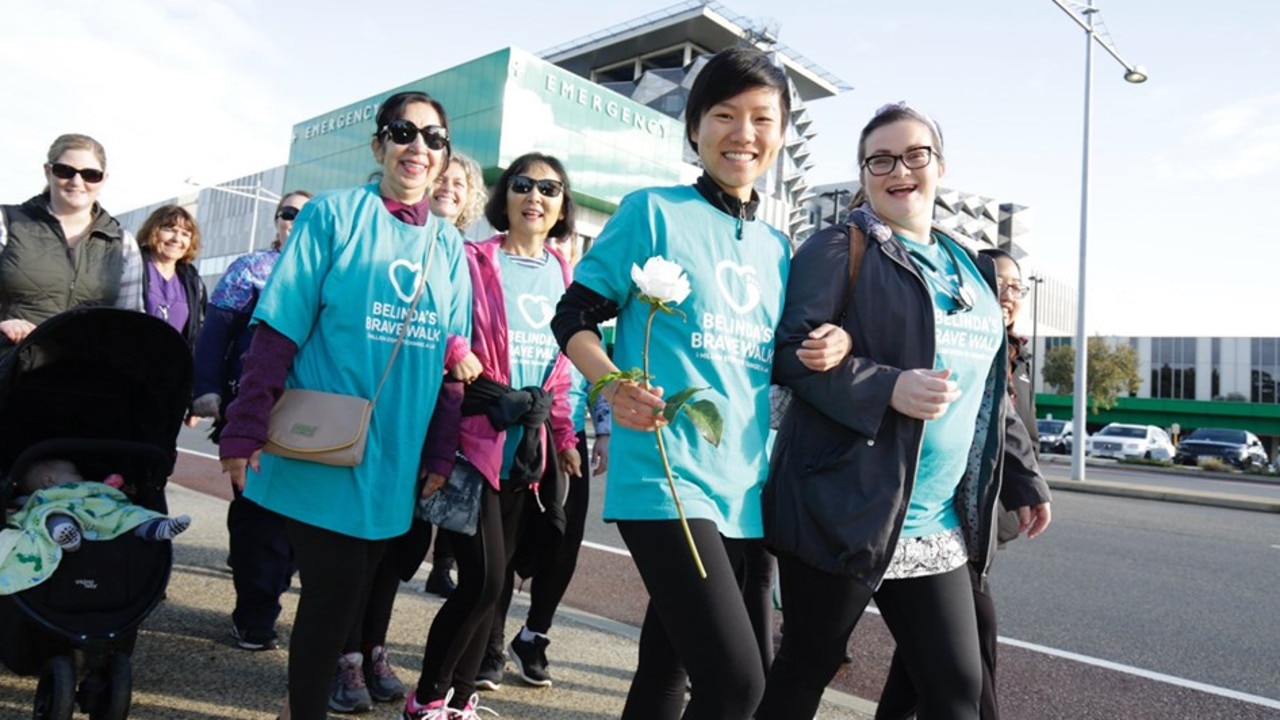
There have been plenty of moments of pure beauty too. A picturesque and pristine stretch of beach, encounters with curious birds and other animals, expanses of wildflowers, all of which remind her of her mum.
“I have felt closer to her in some way, I think.
“Even though my mum is no longer here and there’s nothing I can do about that, it’s a gesture to show that I wish I could.”
Now that she’s home, her monumental journey has come to an end. This chapter of it, at least.
“I’m conscious that even though my journey ends, WA’s journey towards law reform for voluntary assisted dying is far from over. We’ve got a long road ahead of us and I’m not done yet.”




